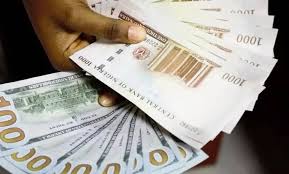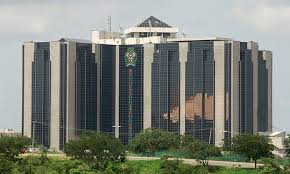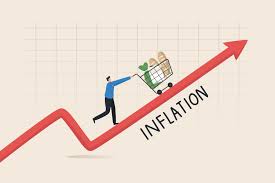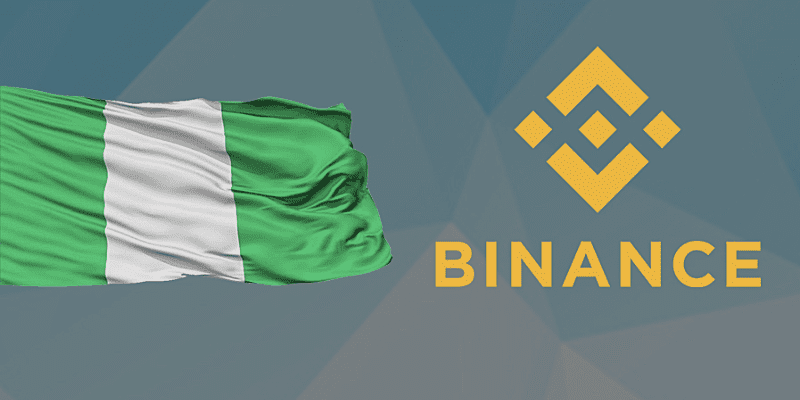The Naira’s Gamble: Can Nigeria’s Interest Rate Cut Fix a Broken Economy?

Introduction: A Surprise Move in Abuja
When the Central Bank of Nigeria (CBN) announced an unexpected benchmark interest rate cut, the financial world blinked in surprise, policymakers had raised rates aggressively to tame runaway inflation, which had stubbornly hovered at record highs. Yet, in a move that seemed to defy textbook economics, the apex bank has suddenly pivoted, slashing rates in hopes of reviving a battered economy and easing pressure on households.
The timing couldn’t be more dramatic. Nigerians are reeling under the weight of surging food prices, collapsing purchasing power, and a naira that has endured relentless depreciation. Yet in recent weeks, the naira has shown a surprising rebound, appreciating against the dollar as inflows improved and the greenback softened globally. With this unexpected twist, the question becomes unavoidable: is the CBN’s rate cut a much-needed lifeline, or a reckless gamble that could undo fragile gains?

In a country where its currency is considered one of the weakest in the world, the Central Bank of Nigeria faces a monumental task: can it truly change the narrative and secure a lifeline for the nation’s financial future on the global stage? The recent appreciation of the naira against the dollar offers a glimmer of hope, but the bigger question is whether this recovery is sustainable or just another fleeting rebound. Investors both local and foreign, are watching closely, weighing whether this policy shift signals real economic reform or simply a temporary gamble that could unravel if structural issues remain unresolved.
The Mechanics of the Cut
The CBN lowered its benchmark Monetary Policy Rate (MPR) by 50 basis points to 27%. This decision was announced after the September 2025 Monetary Policy Committee (MPC) meeting and was driven by a sustained trend of disinflation and a goal to support economic recovery while maintaining financial stability, marking its first cut in years. The bank justified the move by pointing to the need to stimulate credit, unlock growth, and ease financial strain on both businesses and households.
Markets reacted with a mix of optimism and skepticism. Banks anticipated lower borrowing costs, while investors debated whether easing policy amid double-digit inflation was prudent.
Adding intrigue, the naira has recently appreciated against the dollar, falling to around ₦1,486 per $1 at the official market. In the parallel market too, the currency has posted rare gains, buoyed by rising dollar inflows, cautious central bank interventions, and a weakening U.S. dollar globally. On the surface, this strengthens the CBN’s case: perhaps Nigeria has turned the corner. But critics warn that a fragile currency propped up by temporary inflows cannot withstand reckless policy experiments.
Inflation vs. Growth: The Tug of War
Nigeria is in a bind. Inflation, particularly inflation affecting the prices of food, has remained one of the highest in Africa, eating into wages and impoverishing millions. For central banks, the standard response is to raise rates to cool demand and stabilize prices.

Yet high interest rates also choke growth. Nigerian businesses, especially SMEs, have long complained about double-digit borrowing costs that make expansion impossible. For households, mortgages and loans are unaffordable luxuries. By cutting rates, the CBN is effectively choosing growth over inflation control, a risky but politically tempting move in a country where the cost of living crisis has fueled public anger.
The question is whether this gamble will unlock productivity or backfire by reigniting inflation, eroding the naira’s fragile appreciation, and leaving citizens worse off.
Impact on Nigerians
For ordinary Nigerians, the effects of this policy will be felt in daily life.
Households: Families juggling loan repayments could find relief as lending rates drop. In theory, cheaper credit could also stimulate spending and home ownership.
Businesses: SMEs and startups may finally access more affordable capital, unlocking entrepreneurship and job creation.
Consumers: The naira’s recent appreciation could ease the cost of imported food, fuel, and electronics — providing temporary relief from sky-high inflation.

But there’s a catch. If the rate cut undermines investor confidence, the naira could weaken again, driving import costs even higher and making inflation more severe. For a country heavily dependent on imports, a falling naira would erase any short-term gains from the policy. In short, this relief may be as fleeting as it is fragile. Compounding the challenge, some businesses and traders may exploit policy changes for selfish gain. Instead of passing on the benefits of the naira’s appreciation to consumers by offering goods at lower prices, they might continue charging higher rates, profiting from the public’s limited understanding of market dynamics and further straining household budgets.
Political Economy: Tinubu’s Reform Gamble
The decision also reflects the larger political backdrop of President Bola Tinubu’s reform agenda. His government has taken bold, controversial steps — removing fuel subsidies, liberalizing the forex market, and courting foreign investment. Each reform, however, has unleashed painful short-term consequences, fueling protests and discontent.
The CBN’s rate cut appears to align with this reformist gamble: prioritizing growth, investment, and jobs, even if inflation remains stubborn. Critics argue it smacks of politics more than economics, a bid to ease public pressure ahead of future elections. Supporters counter that Nigeria cannot “austerity” its way out of poverty, growth must come first, even at the risk of inflation.
Whether this gamble pays off depends on whether the government can pair monetary easing with structural reforms: fixing power, stabilizing fuel supply, improving productivity, and diversifying exports.
Global Comparisons and Investor Confidence
Nigeria is not alone in walking this tightrope. Across Africa, central banks in Ghana, Kenya, and South Africa have battled the same inflation-growth dilemma, mostly keeping rates high to anchor investor confidence.
What makes Nigeria different is its heavy reliance on imports and oil exports. While Ghana and Kenya export cocoa and tea, Nigeria imports almost everything from wheat to petrol. A weak naira therefore translates directly into higher prices, creating a vicious cycle.
For investors, the mixed signals are worrying. On one hand, a stronger naira and lower rates could make Nigeria more attractive for portfolio inflows. On the other, doubts about inflation control and forex stability could trigger capital flight. Nigeria’s reputation for policy inconsistency doesn’t help. The rate cut, while bold, risks being seen as another gamble rather than a coherent strategy.
The Risks: A Fragile Balancing Act
At the heart of the matter lies fragility. The naira’s recent rebound has lifted spirits, but it is built on shaky ground — temporary inflows, central bank interventions, and global dollar weakness. Without strong reserves, industrial growth, and a credible plan to manage debt, this appreciation could quickly unravel.
The rate cut piles on additional risks. Lower rates may stimulate demand, but without sufficient supply and productivity, this could fuel inflation. Worse, if inflation spikes, the CBN may be forced to reverse course abruptly, undermining its credibility.
Nigeria’s economic managers must therefore walk a tightrope: keeping the naira steady, controlling inflation, and stimulating growth — all at once. Few economies can pull this off, and Nigeria’s past record of policy missteps inspires little confidence.
Conclusion: Lifeline or Gamble?
The CBN’s interest rate cut is more than just a monetary policy tweak — it is a defining gamble on the future of Africa’s largest economy. For now, the naira’s appreciation offers hope that the policy could ease inflationary pressures, lower borrowing costs, and boost confidence. But hope is not strategy.
If inflation roars back, the naira slides, and investor confidence wanes, this experiment could leave Nigerians worse off than before. On the other hand, if paired with deep structural reforms, the policy could mark the beginning of a new growth era.
Nigeria stands at a crossroads: bold gamble or strategic lifeline? The answer lies not just in the CBN’s rate cut, but in whether the government can finally break its cycle of dependency, inefficiency, and policy inconsistency.
For now, the naira’s gamble continues — with 200 million Nigerians watching closely, their livelihoods hanging in the balance.
You may also like...
When Sacred Calendars Align: What a Rare Religious Overlap Can Teach Us

As Lent, Ramadan, and the Lunar calendar converge in February 2026, this short piece explores religious tolerance, commu...
Arsenal Under Fire: Arteta Defiantly Rejects 'Bottlers' Label Amid Title Race Nerves!

Mikel Arteta vehemently denies accusations of Arsenal being "bottlers" following a stumble against Wolves, which handed ...
Sensational Transfer Buzz: Casemiro Linked with Messi or Ronaldo Reunion Post-Man Utd Exit!

The latest transfer window sees major shifts as Manchester United's Casemiro draws interest from Inter Miami and Al Nass...
WBD Deal Heats Up: Netflix Co-CEO Fights for Takeover Amid DOJ Approval Claims!

Netflix co-CEO Ted Sarandos is vigorously advocating for the company's $83 billion acquisition of Warner Bros. Discovery...
KPop Demon Hunters' Stars and Songwriters Celebrate Lunar New Year Success!

Brooks Brothers and Gold House celebrated Lunar New Year with a celebrity-filled dinner in Beverly Hills, featuring rema...
Life-Saving Breakthrough: New US-Backed HIV Injection to Reach Thousands in Zimbabwe

The United States is backing a new twice-yearly HIV prevention injection, lenacapavir (LEN), for 271,000 people in Zimba...
OpenAI's Moral Crossroads: Nearly Tipped Off Police About School Shooter Threat Months Ago
ChatGPT-maker OpenAI disclosed it had identified Jesse Van Rootselaar's account for violent activities last year, prior ...
MTN Nigeria's Market Soars: Stock Hits Record High Post $6.2B Deal

MTN Nigeria's shares surged to a record high following MTN Group's $6.2 billion acquisition of IHS Towers. This strategi...

